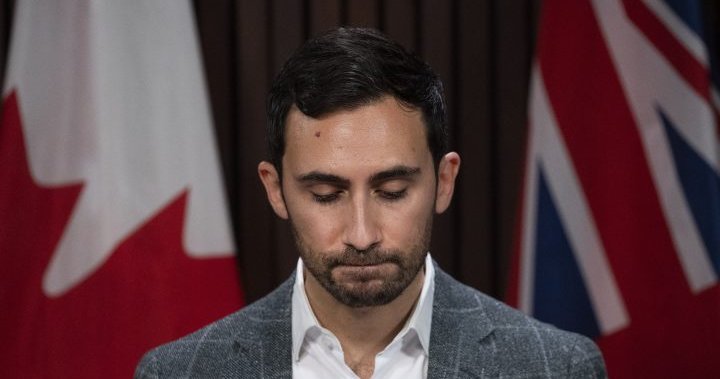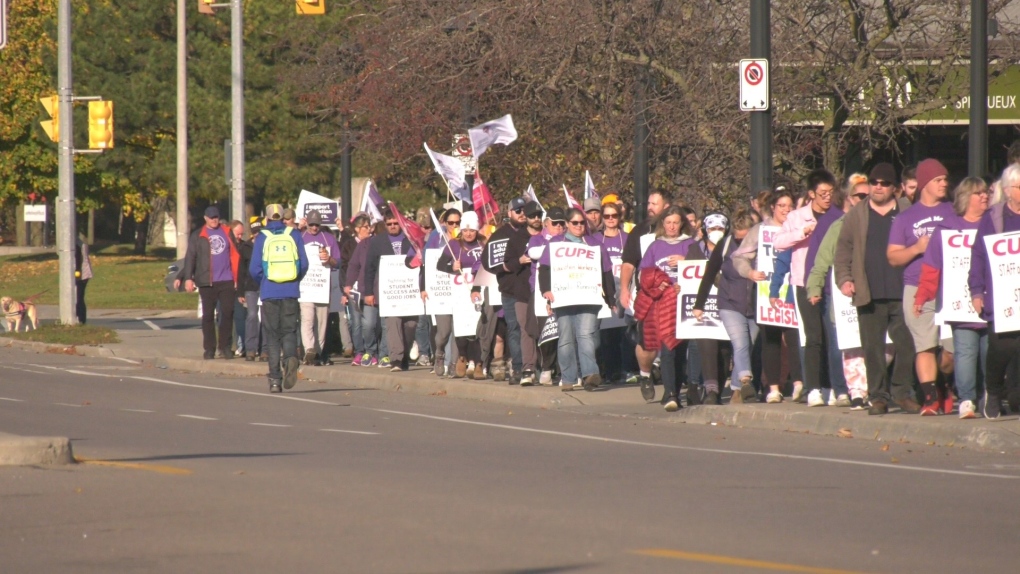"If you don't like it, leave" is the foundation for most jobs in Canada. So is the counterpart, "If you want to keep me, pay more." Most jobs aren't unionized and don't involve collective bargaining.
Sure, but many do, and, importantly, it’s a protected Charter right. The government made it FAR worse through its legislative attempt to strip that. There are several lesser tools it could have used. I’m annoyed that the government hasn’t dealt with these workers fairly. I’m
pissed off that the government is attacking their underlying rights in this matter. I think a lot of people are.
Aaaanyway, meanwhile, the Ontario Labour Relations Board has continued today for its fourth straight day of hearings on this- the fact that an administrative tribunal is convened at 7 a.m. on a Sunday show how urgently this is being treated. I’m gonna try to shift from being part of us all yelling at each other (because clearly none of us are changing each others’ minds) and transition more to law nerd and try to break down some of the procedural stuff.
The board began hearing arguments after the minister of education made an application to deem the walkout unlawful.

globalnews.ca
I’m trying to follow some of this live; it’s law I’m much less familiar with. This morning CUPE and Ontario are arguing conflicting points before the Board. The matter was brought to the Board by Ontario to determine whether an illegal strike is taking place, but this seems to be quickly progressing to broader legal questions that are definitely going to challenge the limits of the bird’s authority.
For context, the Ontario Labour Relations Board is an administrative tribunal, not a court. It exists under the authority of, and to adjudicate matters under the Ontario Labour Relations Act. Boards can and do consider broader legal principles in making decisions, but they cannot strike down laws, and they cannot create binding legal precedent. The decisions and actions of an administrative tribunal are confined to what the law creating them gives them power over. This system exists to let people with greater technical expertise make legally binding decisions on routine matters. The example most likely to be familiar to members here would be VRAB, the Veterans Review and Appeal Board. Or if you’ve ever dealt with a landlord/tenant tribunal, same idea.
I have no idea how this hearing will go, however the board has expressed at least conceptual openness to sending both parties back to the table. Ontario stated that such an order would be uncharted waters for the Board; to which the Board then pointed out that “this whole bill is uncharted terrain, we have never had a bill like this in Canadian history.”
Part of the argument the government is making is that the collective bargaining right to strike arising out of 2(d) of the Charter doesn’t cover mid-contract strikes. They argue that because they claim a collective agreement exists (imposed by Bill 28), the Union does not enjoy a freedom of association right to strike. That’s an… interesting take. It rests entirely on the logic of “we have the power to force this and so you cannot do anything about it”.
Meanwhile, CUPE is raising arguments about whether the definition of “strike” in the Ontario Labour Relations Act is itself a Charter compliant definition, and if it isn’t, whether Bill 28 has ‘notwithstood’ that. I’m still trying to wrap my head around the significance of that but it may speak to what authority the Board actually has to adjudicate this.
Either side can request judicial review of a tribunal decision; that would go to the Ontario Superior Court of Justice in this case. Usually judicial review focuses on ‘reasonableness’ - could the administrative decision maker have reasonably reached the decision they did? (Not whether the court agrees with the decision). However they can also review for correctness, when there are stronger legal questions at play, such as constitutional issues, or broadly applicable principles of law.
One way or another it would not surprise me to see this matter proceed pst OLRB to the courts, whether by judicial review of an eventual OLRB decision, or other separate application. The province has chosen to force a very significant legal dispute through invoking NWC versus the right to strike. This is probably the most significant event in Canadian labour law in decades.



